Free Will Disproved by Science?
by Matt Nelson
Filed under Anthropology, Science
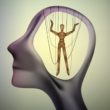
For those who reject the notion of free will, our experience of making our own decisions is nothing more than a deep-seated illusion. “The reality is,” insists biologist Anthony Cashmore, “not only do we have no more free will than a fly or a bacterium, in actuality we have no more free will than a bowl of sugar.” Those who argue for the nonexistence of free will often do so on scientific grounds. And those who offer a scientific “proof” against free will point to one... Read More
St. Anselm’s God
by Matt Nelson
Filed under The Existence of God

St. Anselm’s ontological argument for God’s existence often gets a bad rap, not just from atheists but even from many Catholics. For one thing, it can be a difficult argument to understand. Though its premises are rather simple, something about it makes us think we are being tricked. For another thing, we know that eminent authorities like St. Thomas Aquinas have expressed their discontent with the argument. Nonetheless, I think it is wrong to discard the argument without a second thought.... Read More
Why Atheists Change Their Mind: 8 Common Factors
by Matt Nelson
Filed under Atheism, Conversion

Conversions from atheism are often gradual and complex, no doubt. For many converts the road is slow and tedious, tiring and trying. But in the end unbelievers who find God can enjoy an inner peace that comes from a clear conscience in knowing they held to truth and followed the arguments faithfully. Of course not all converts from atheism become Christian or even religious. Some converts only reach a deistic belief in God (an areligious position that God is “impersonal”) but the leap is... Read More
Does Conscience Point Towards the Existence of God?
by Matt Nelson
Filed under The Existence of God

Throughout the wide world of creation God has left all sorts of signs that point right back at him. Often these clues tell us more than that a divine being exists; they often tell us what kind of divine being exists. Some of these clues lie right before our nose in the world around us, whereas others lie deep inside of us at the level of immediate subjective experience. Among these interior signs is the conscience, which points not merely toward the existence of God but the existence of a personal... Read More
Do Extraordinary Claims Require Extraordinary Evidence?
by Matt Nelson
Filed under The Existence of God
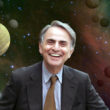
Too often people have a parrot-like propensity to be seduced by a catchy saying, hold to it, and assert it repeatedly without thinking seriously about what they’re saying. They remember before they speak, but they don’t think before they speak. And the most astonishing fact is that all too often they really do believe they have said something wise. Chesterton provided an example when he critiqued the popular exhortation to “believe in yourself” in his classic Orthodoxy. “Thoroughly worldly... Read More
How to Prove that God Doesn’t Exist
by Matt Nelson
Filed under The Existence of God
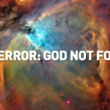
There are a couple things I can appreciate about the “Who designed the Designer?” argument. Although it is rooted in a caricature of the kalam cosmological argument’s first premise ("Whatever begins to exist has a cause"), it is a positive argument for atheism, and it does attempt to deal with the God hypothesis in the only arena where God’s existence may be decisively confirmed or refuted: the arena of philosophy. The God defended by Christian theists is a transcendent, eternal,... Read More
Where is God? The Problem of Divine Hiddenness
by Matt Nelson
Filed under The Existence of God
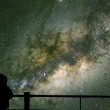
If God exists, where is he? Moreover if God is all-loving and all-powerful why hasn’t he shown himself to the world? He’s all loving: why would he leave any room for doubt? He’s all-powerful: why not reveal himself in the most spectacular of ways that would make unbelief impossible? I’ll start by admitting that the argument from the hiddenness of God is a reasonable objection; and I’ll also admit that there are days when I wonder to myself in exasperation, “God where are you?”... Read More
An Agnostic’s Assessment Of New Atheist Attitudes
by Matt Nelson
Filed under New Atheists
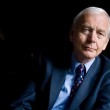
Richard Dawkins, Sam Harris, Daniel Dennett and the late Christopher Hitchens—these are the posterboys for what some have called the “New Atheists”. What’s new about the New Atheists? In his book, Gunning For God, Oxford mathematician John Lennox says it’s their tone and emphasis. The tone of today’s New Atheists is one of intensity and aggression. They are not out to merely inform. They are out to convert—to de-vangelize. In the The God Delusion, Dawkins admits: “If this book works... Read More
Is God Too Complex To Be The Creator?
by Matt Nelson
Filed under God's Nature

Richard Dawkins believes that if the universe began to exist—it was caused by nothing. In a debate with Cardinal George Pell in 2012 he asserted: "Of course it's counterintuitive that you can get something from nothing! Of course common sense doesn't allow you get something from nothing! That's why it's interesting. It's got to be interesting in order to give rise to the universe at all!" He was right about at least two things: to get something from nothing is both counterintuitive and in opposition... Read More
Is the Catholic Church a Force for Good?
by Matt Nelson
Filed under History, The Church
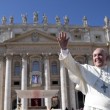
Western civilization is greatly indebted to the Catholic Church. Modern historical studies—such as Dr. Thomas E. Woods' How The Catholic Church Built Western Civilization—have demonstrated with force and clarity that it is the Catholic Church who has been the primary driving force behind the development and progress of the civilized world. The Church has provided innumerable 'goods' for the benefit of humanity. Nonetheless, modern critics assert that no amount of good could outweigh the evil... Read More







